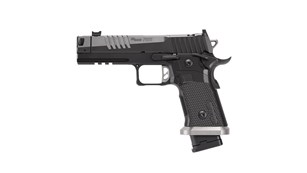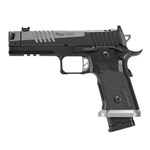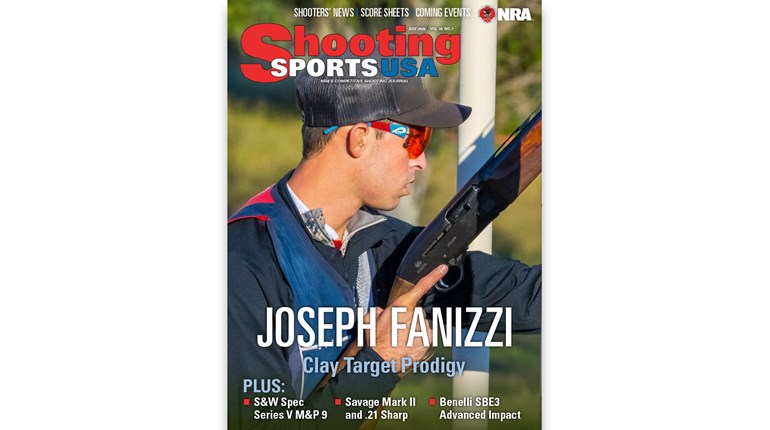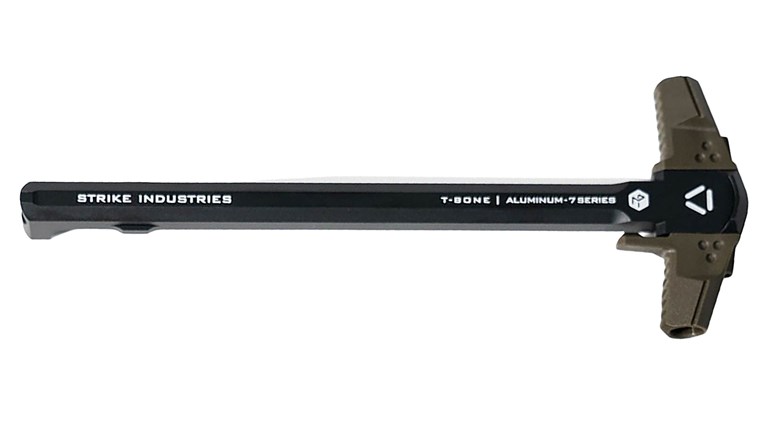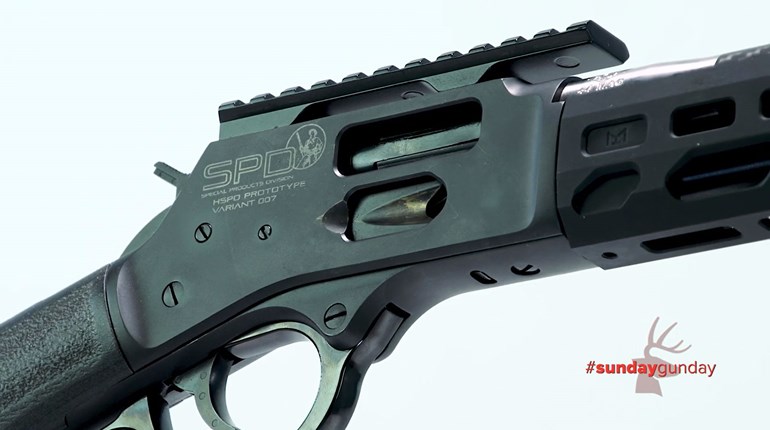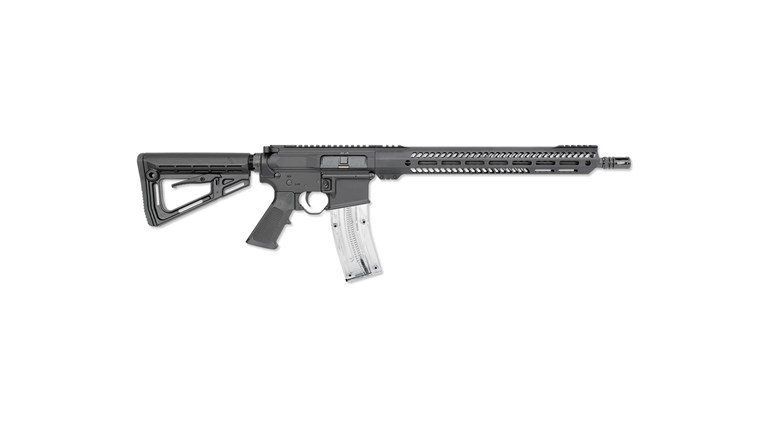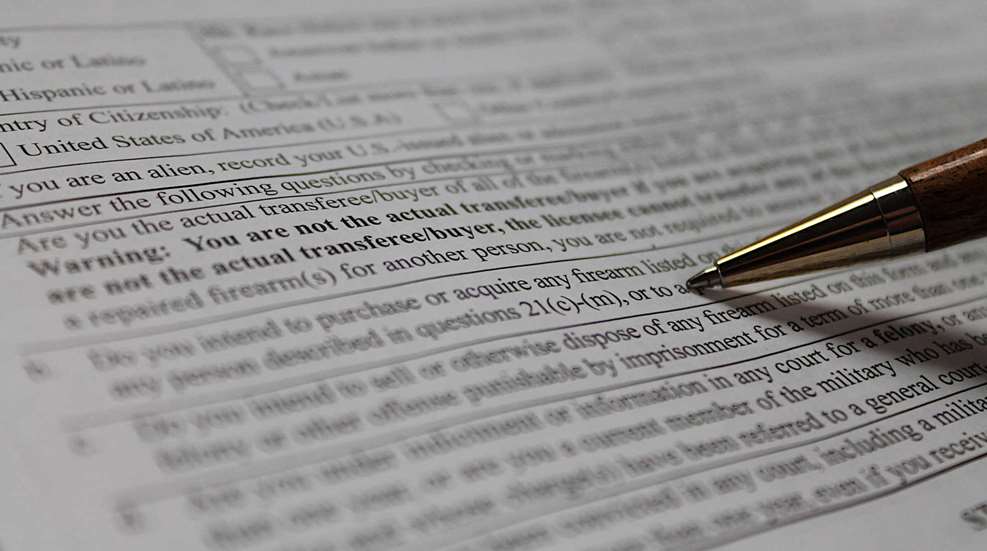
If you haven’t recently purchased a firearm from a federally licensed (FFL) dealer or gun store, you will discover two new questions on ATF Form 4473, revised in December 2022 and replacing the old Form 4473 as of April this year. The language of the two questions baffle many first-time users of the revised Form 4473, both in meaning and purpose. Here’s a common-English explanation of the new form.
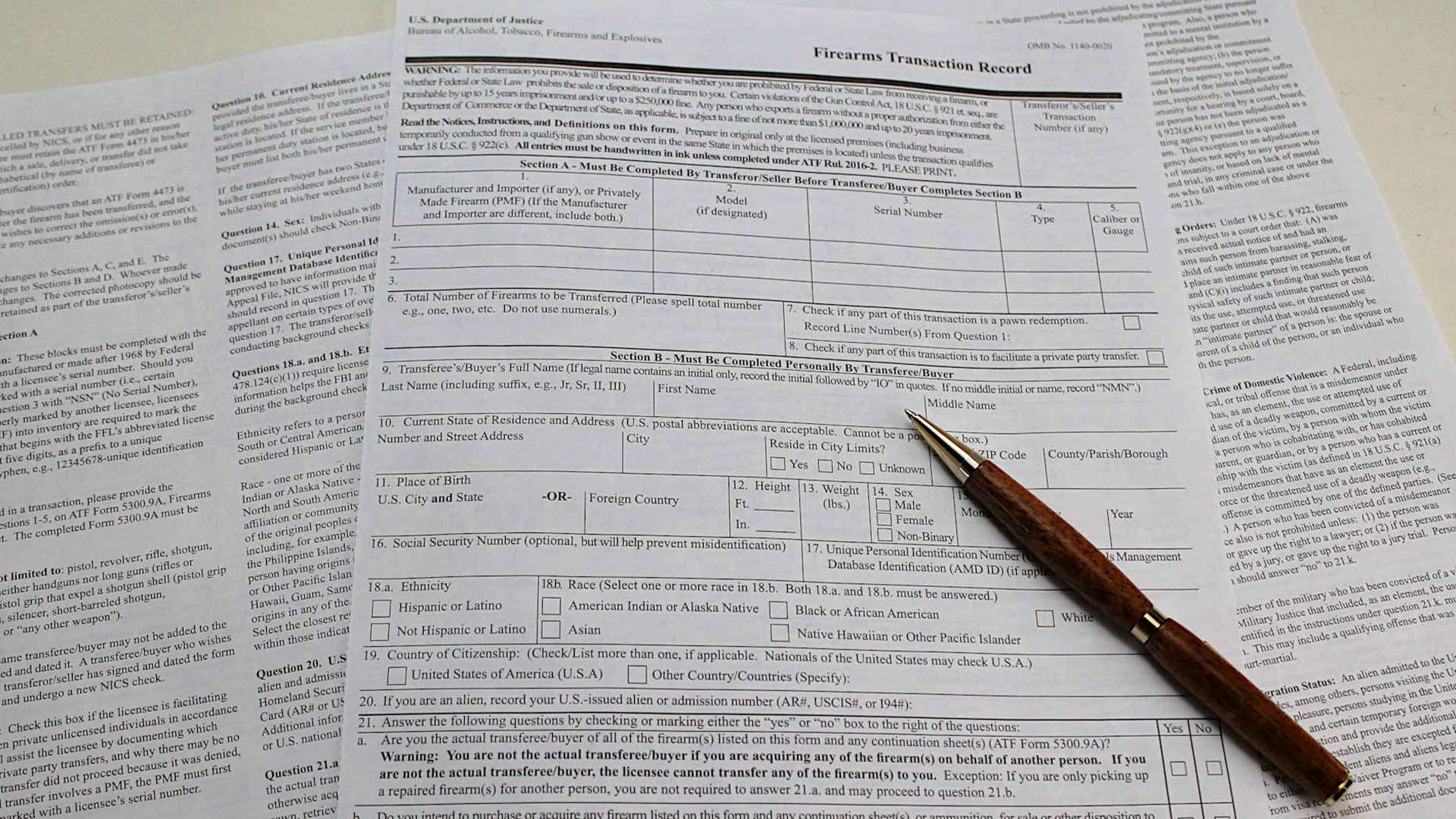
As on the old Form 4473, purchasers fill out Section B, which begins with information that identifies the purchaser, such as name, address and physical features (race, sex, height and weight). Block 21 in Section B contains 15 yes-or-no questions, the last 12 of which are to determine whether the purchaser is a “prohibited possessor,” that is, prohibited from possessing a firearm under federal law. The first three questions, 21.a, 21.b and 21.c relate to “straw purchases.” A straw purchase is essentially one in which the buyer, who is not a prohibited possessor, intends to purchase the firearm for one who is a prohibited possessor. Questions 21.b and 21.c are new.
“ATF added those two questions to help their enforcement of straw purchases,” attorney Ryan Cleckner, who specializes in FFLs, said in an email exchange. “On the old 4473s, straw purchases were intended to be thwarted by having the customer affirm that they were the actual purchaser [which they still do, in Block 21.a]. However, that led to plenty of confusion about who the ‘actual purchaser’ was—for example, they may have been purchasing the firearm with their money but later planned to sell it to someone else. To help make it more clear that the purchaser is not a prohibited person and that they weren't purchasing the firearm with the intent to give it to a prohibited person, ATF added those questions.”
New questions
Question 21.b, new to the Form 4473, is the first to confuse purchasers, and reads:
“21b: Do you intend to purchase or acquire any firearm listed on this form and any continuation sheet(s) or ammunition, for sale or other disposition to any person described in questions 21(c)-(m) or to a person described in question 21.n.1 who does not fall within a nonimmigrant exception?”
Questions 21.d through 21.m asks if the purchaser has convictions, indictments or other disqualifying events in his or her background. Any person who would answer “Yes” to any of Questions 21.d through 21.m is a prohibited possessor (U.S. citizens do not answer Questions 21.n.1 or 21.n.2). Question 21.b is asking if the purchaser intends to pass the firearm (or ammunition) along to someone they know is a prohibited possessor—a straw purchase.
Question 21.c is also new to the Form 4473, which also causes purchasers some confusion, reading:
“21.c.: Do you intend to sell or otherwise dispose of any firearm listed on this form and any continuation sheet(s) or ammunition in furtherance of any felony or other offense punishable by imprisonment for a term of more than one year, a Federal crime of terrorism, or a drug trafficking offense?”
In an email exchange, ATF Public Affairs Division Deputy Chief Erik Longnecker clarified its meaning by highlighting the pertinent parts of the question (emphasis ours):
“Do you intend to sell or otherwise dispose of any firearm listed on this form and any continuation sheet(s) or ammunition in furtherance of any felony or other offense punishable by imprisonment for a term of more than one year, a Federal crime of terrorism, or a drug trafficking offense?”
“That language is taken from a trafficking statute within the BSCA [Bipartisan Safer Communities Act],” he said. (Here is the congress.gov webpage with the BSCA’s text.)
Oddly, though the Form 4473 includes more than four pages of explanations on filling out the form, explanation for Questions 21.b and 21.c are specifically excluded. The ATF webpage describing the changes to the Form 4473, while clarifying the meaning of Question 21.b, does not do so for Question 21.c.





